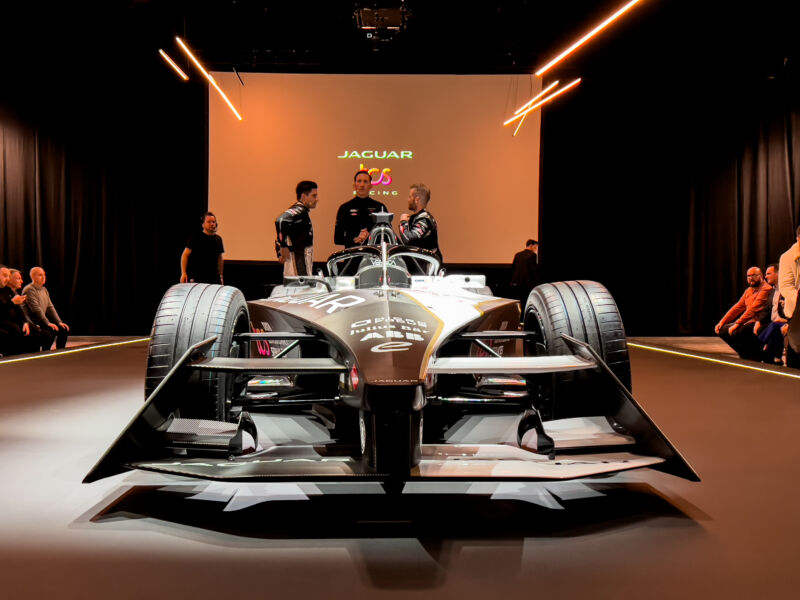Jaguar’s Formula E team is a good example of how racing improves road EVs

Enlarge / Jaguar's latest factory racing car is the I Type 6, its latest Formula E challenger. (credit: Jonathan Gitlin)
Jaguar provided a flight from DC to London and back and a night in a hotel so we could see its new Formula E car and speak to its engineers. Ars does not accept paid editorial content.LONDON-On Wednesday, Jaguar Racing became the latest Formula E team to unveil its race car for the coming season. The sport has radical new technical rules for its third-generation race car, which is smaller, lighter, more powerful, and more efficient. This will be the British automaker's sixth season competing in the series, and its participation is for more than just marketing; Jaguar Land Rover's electrified road cars have benefited in tangible ways as a result, according to the team's technical manager Phil Charles.
"If you rewind back to 2017, that's the first time that [we used] our in-house inverter for the racing team," Charles told Ars. "We put a silicon carbide switching device, the Wolfspeed one actually... that gave us the ability to switch super fast. That was the push on our side-we want to switch faster and see if that can give us efficiency, which it did. So we've gotten over and over and over during these inverter development cycles, switching faster and faster and faster," he said.
At the time, few manufacturers looked at silicon carbide power electronics for road-going EVs. "Now everyone wants silicon carbide, and the reason they want it is the same reasons we do," Charles said. "So the tech that we pushed then has really caught up now-the race to road is really clear. If I kind of map our switching speed increase, we've done five evolutions with different topologies of the in-house inverter. Now the road cars are coming along and the benefit there is range, ultimately; it means smaller batteries."